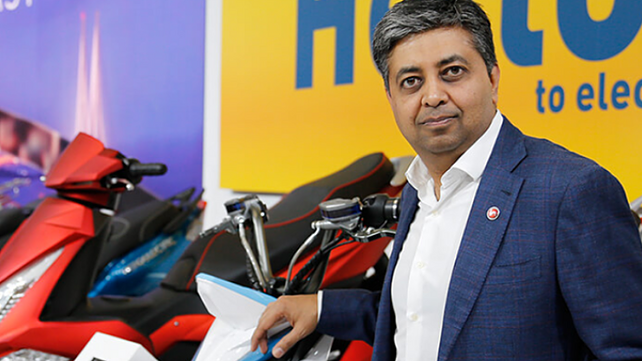
Home-grown electric two-wheeler manufacturer, Hero Electric has clocked its best-ever sales in the history of the company, riding on the back of a hybrid sales model and three-day trial scheme.
After seeing the complete wash-out of Q1 sales in FY21, the Gurugram-based EV maker trained its dealers to sell and market vehicles both online and offline.
In a pandemic-hit year, where the first couple of months recorded almost zero sales, Hero Electric sold a record number of 53,000 electric scooters, up by 15%. With robust sales in FY21, the company now aims to sell five to seven lakh electric vehicles by 2025.
To pursue an ambitious growth plan, it is investing a sum of INR 700 crore to ramp up production.
“We are expanding our Ludhiana facility. We are planning to hire more workers and invest in automation to increase the products. With this, we would be able to reach an annual capacity of 300,000 units by end of next year from the current capacity of 75,000 units,” said Naveen Munjal, Managing Director, Hero Electric, in an exclusive interaction with Mobility Outlook.
The company further aims to expand its production capacity by 10 lakh units in three to four years. With an eye on international markets, the company is also looking to set up a new plant in a coastal area, Munjal informed.
Innovative Methods
The company currently has the widest distribution network among all EV makers in India, with 600 touch points covering 500 towns and cities across India.
“We conducted almost six sessions with our dealers to train and apprise them on digital marketing strategy. They were guided to create social media pages and enable them with the right techniques to generate enquiries,” Munjal said.
However, generating enquiries were not enough as they were not converting into final sales, revealed Munjal.
To further convert leads into final sales, the company spoke to potential customers directly through Zoom calls. “The most major concern of customers was that they are hesitating to buy the products because they haven’t tried the product ever,” Munjal said.
One of the most notable strategies that the company introduced to tackle lower awareness about electric vehicles and induce confidence in customers was the three-day trial policy, where customers were given Hero Electric products on a trial basis for three days.
Moreover, during the period, the company trained 4,000 mechanics to provide door-to-door service to check vehicle conditions. The company currently has 13 products organised across two key segments – comfort speed and city speed.